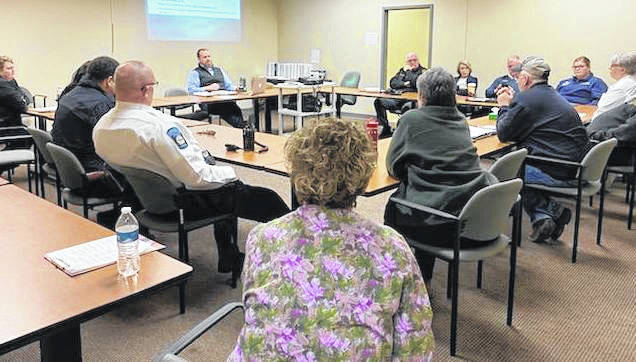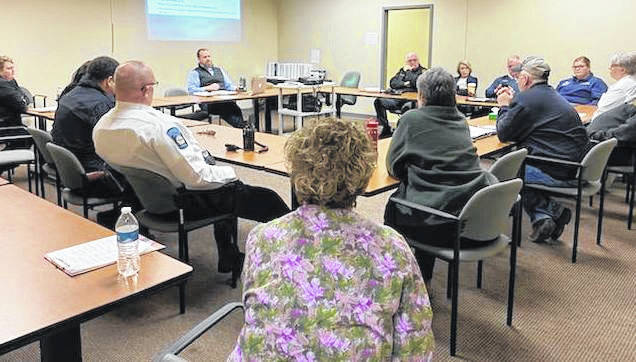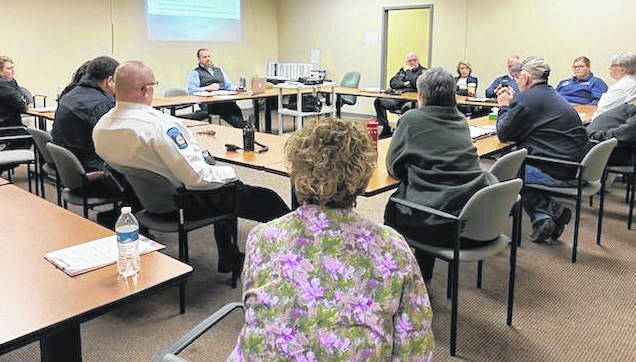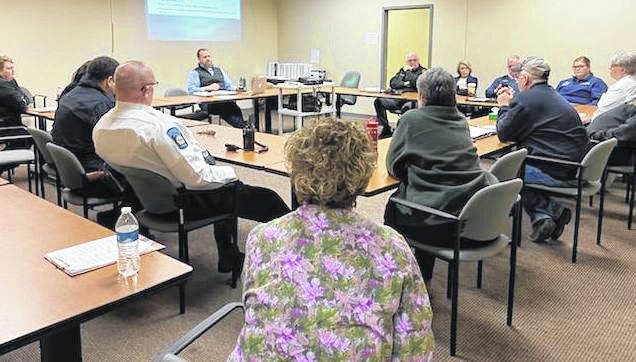



Ohio Governor Mike DeWine declared a state of emergency after announcing that three Ohioans tested positive for the novel coronavirus, also known as COVID-19, on Monday. Highland County Health Commissioner Jared Warner spoke to The Times-Gazette about preparation for local cases.
During a press conference, DeWine discussed what declaring a state of emergency means for Ohio.
“This really allows us to do some things that we could not do without a state of emergency,” DeWine said. “For example, it will allow us to purchase health-related items without a bid.”
DeWine added that he and his team activated the state’s emergency operations center, which will allow officials to communicate better.
DeWine also said the state is canceling all unnecessary travel, and voting locations in nursing homes will be relocated and precautions will be taken at voting locations in schools. He expects the Ohio secretary of state will have more information on voting locations on Tuesday.
“We suggest that people vote early. Voting is still open now. People have the opportunity to go in and vote and avoid a lot of crowds,” DeWine said. “We urge people to use common sense. Avoid crowds; certainly avoid large crowds. Wash your hands frequently; use hand sanitizer.”
DeWine said he’s committed to keeping Ohio residents informed about the situation in Ohio.
A press release later stated that the three people who tested positive were all in their 50s and had contact with others who were confirmed to have coronavirus. All three individuals from Ohio live in Cuyahoga County.
At press time, the Ohio Department of Health’s website said these are the only confirmed cases in Ohio. Five people have been tested and are awaiting their results. Eleven have tested negative.
In Highland County, Health Commissioner Jared Warner told The Times-Gazette that the Highland County Health Department and the Highland County Emergency Management Agency met with local first responders — including firefighters, law enforcement, paramedics and members of the coroner’s office — to discuss plans and procedures for coronavirus’s eventual arrival.
“Things continue to change pretty rapidly with coronavirus,” Warner said. “The risk right now in Highland County remains very low, but looking at the progression of this disease, it’s likely we’re going to have local cases at some point. We’re looking at what will happen when we get own our case here. We’ve got a lot of these processes already in place and written into plans, but it’s always good to revisit them.”
Warner said the Friday meeting with first responders was inspired by reports from other states.
“One of the reasons we had this meeting was reading the reports from out west, where they had so many first responder groups that were accidentally exposed and then had to be quarantined,” Warner said. “We really want to avoid that here, so we’re trying to talk about preventative measures we can do here to keep our first responders safe.”
Warner said the major concern with the epidemic isn’t with the coronavirus itself.
“Our healthcare workers and first responders are going to be on the front lines of this thing. We keep pushing hand-washing and covering your cough and all the preventative steps, so we can avoid overwhelming our healthcare system,” Warner said. “The big thing we worry about right now is access for healthcare workers to the supplies they need. That’s, I think, where the concern of this illness is: it’s not really in the symptoms the illness produces — it’s in the number of people that may overwhelm local hospital systems. I think the bigger risk is how people react to it more than the actual disease itself.”
Warner said that, though COVID-19 is a mild disease for many people, some people can be seriously affected. However, he cautioned community members to avoid panic.
“We really need to have the right risk perception for this. There’s no need for panic,” Warner said. “You don’t need to go out and stockpile three pallets of toilet paper. We really need to focus on washing our hands, covering our coughs, and staying home if we’re sick. Most people who get this illness are recovering with very minor symptoms. The people we really need to be concerned about are our older citizens and people with underlying health conditions. That’s where we tend to see more serious illness.”
Though Warner said he understands why people may be frightened, he said the situation has been exaggerated.
“We’re facing the unknown. We don’t know enough about this virus, and I think when you combine that with the 24-hour news cycle, it oftentimes gets blown out of proportion,” Warner said. “This is still a really serious public health issue, but when you look at it in comparison to the seasonal flu, it kind of helps you keep some perspective on its impact, not just nationally but globally.”
Warner said the health department and emergency management agency will also meet with medical providers and community partners like schools, nursing homes and local jails in the next few weeks.
To read more about the coronavirus and the Ohio Department of Health’s preventative advice, go to coronavirus.ohio.gov. Those with questions about the coronavirus can call the Ohio Department of Health hotline at 1-833-4-ASK-ODH.
Reach McKenzie Caldwell at 937-402-2570.


